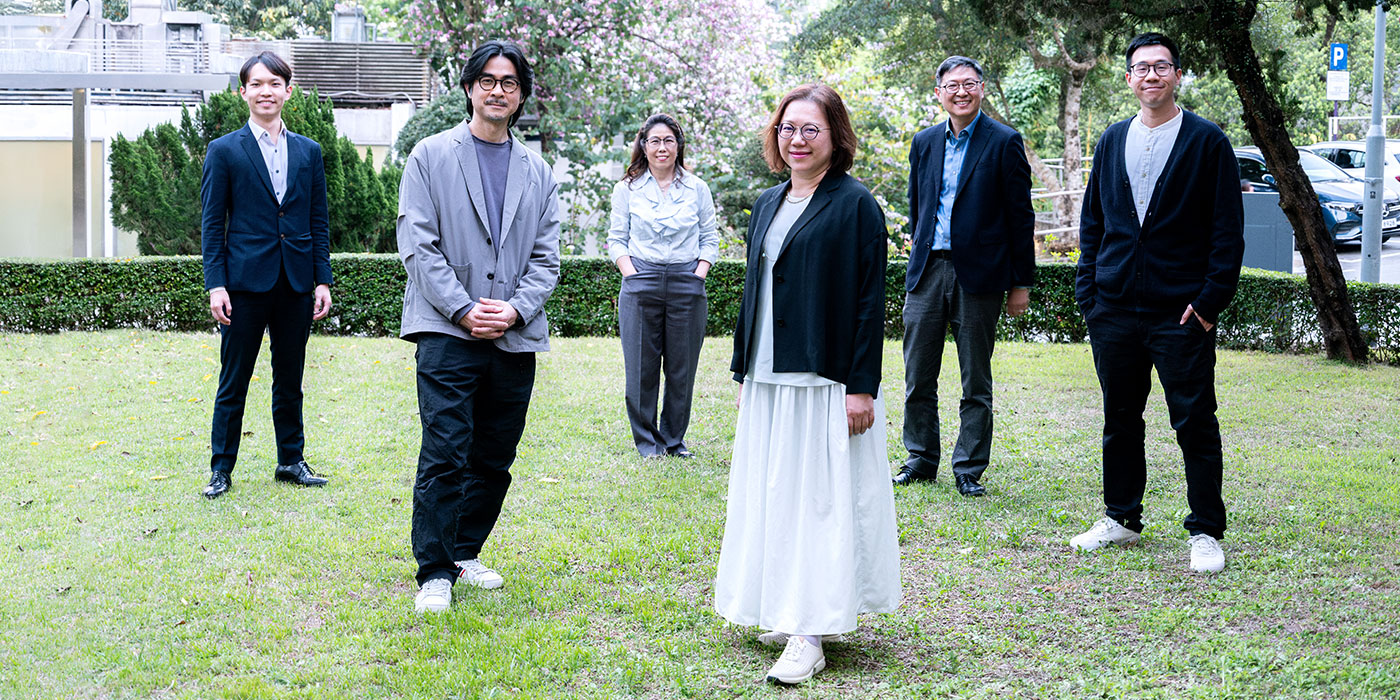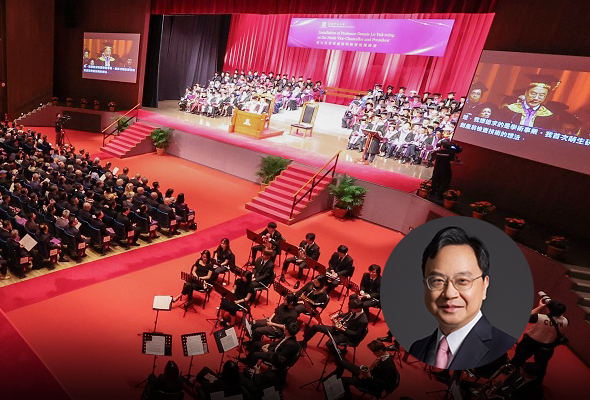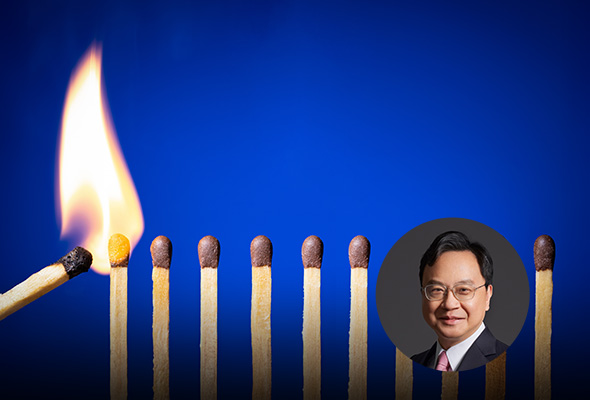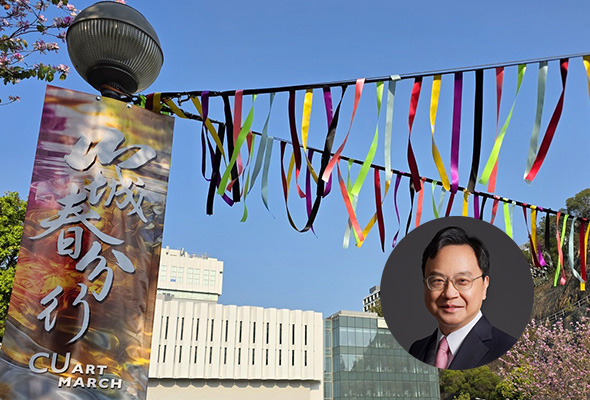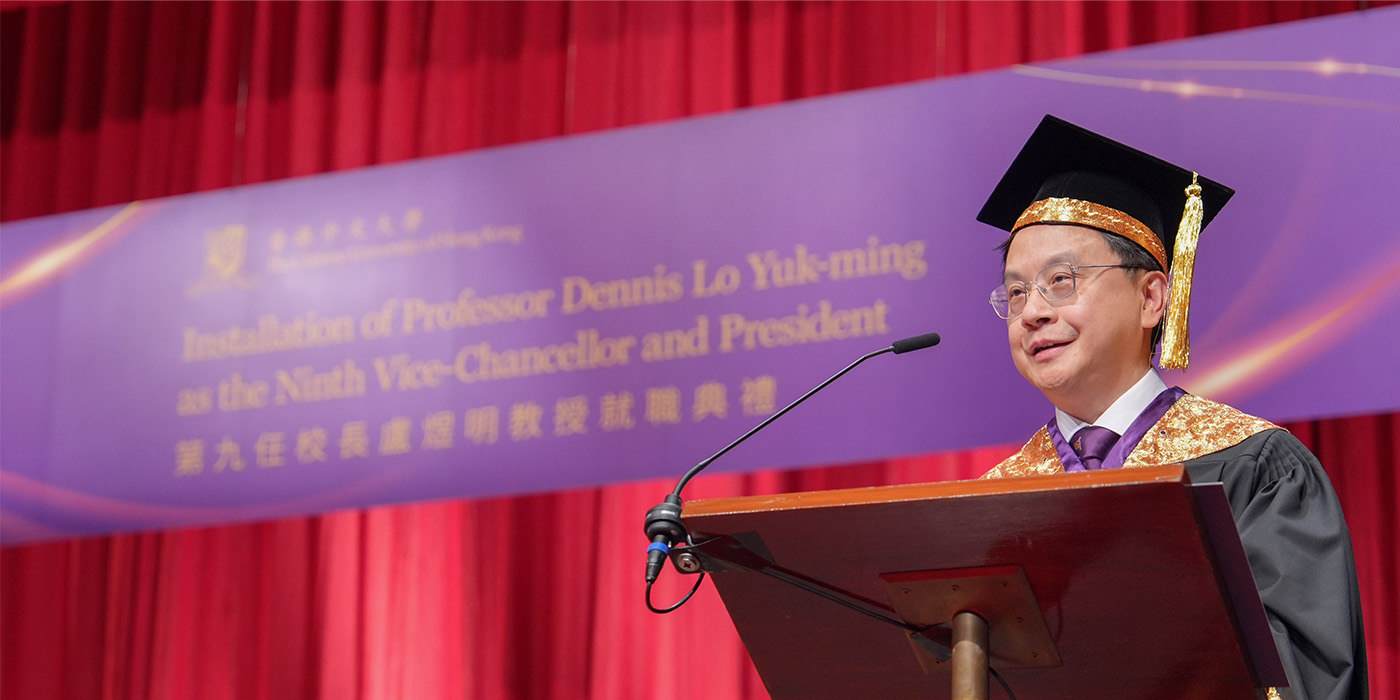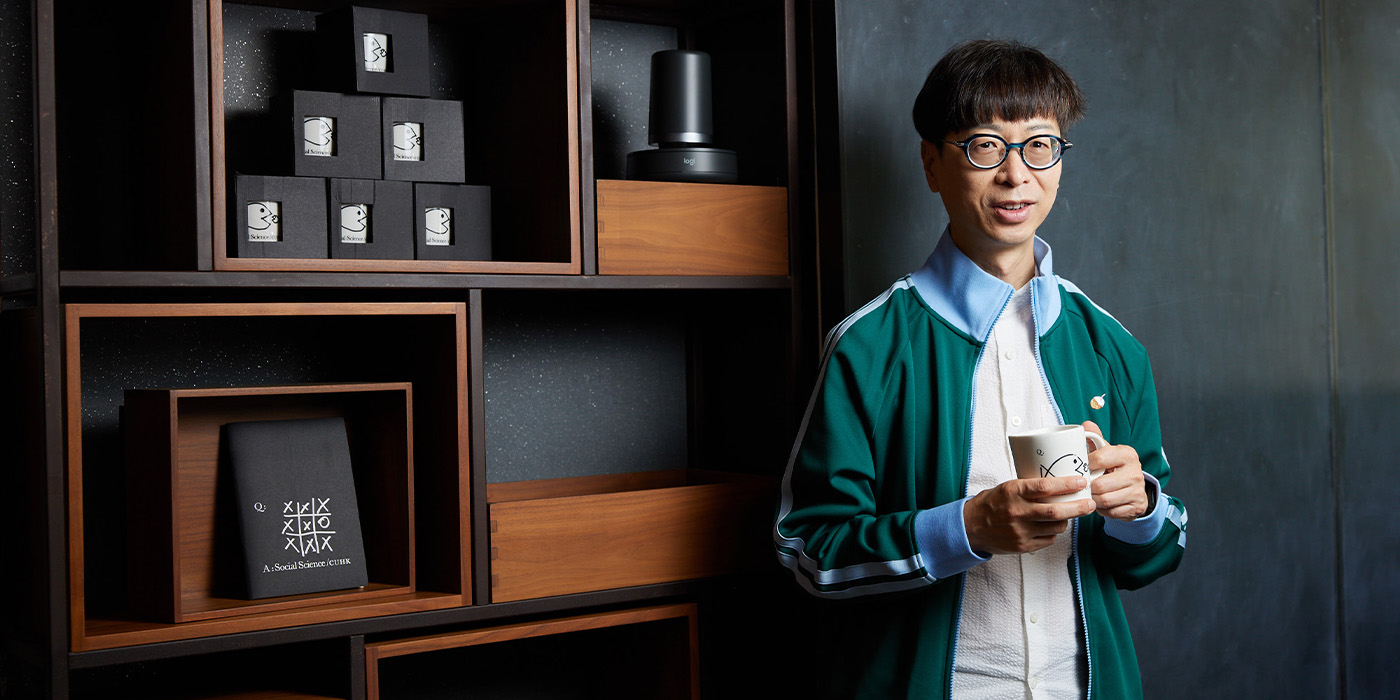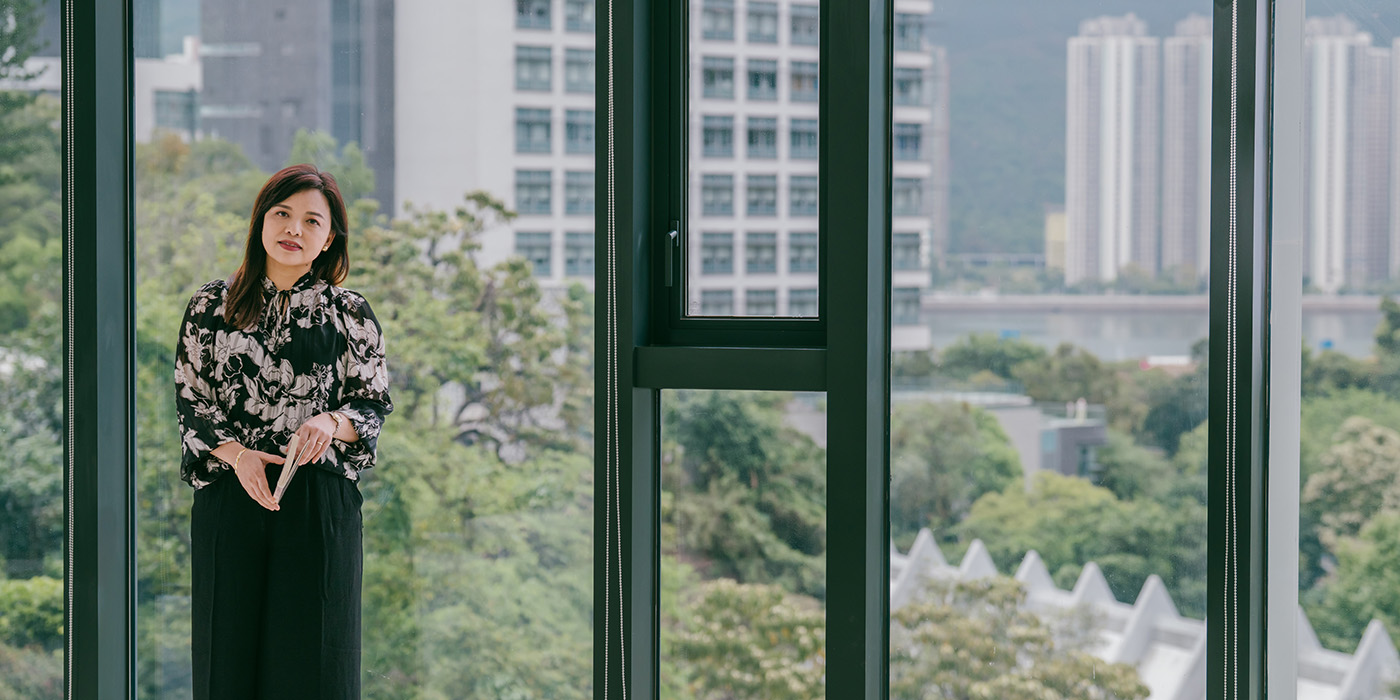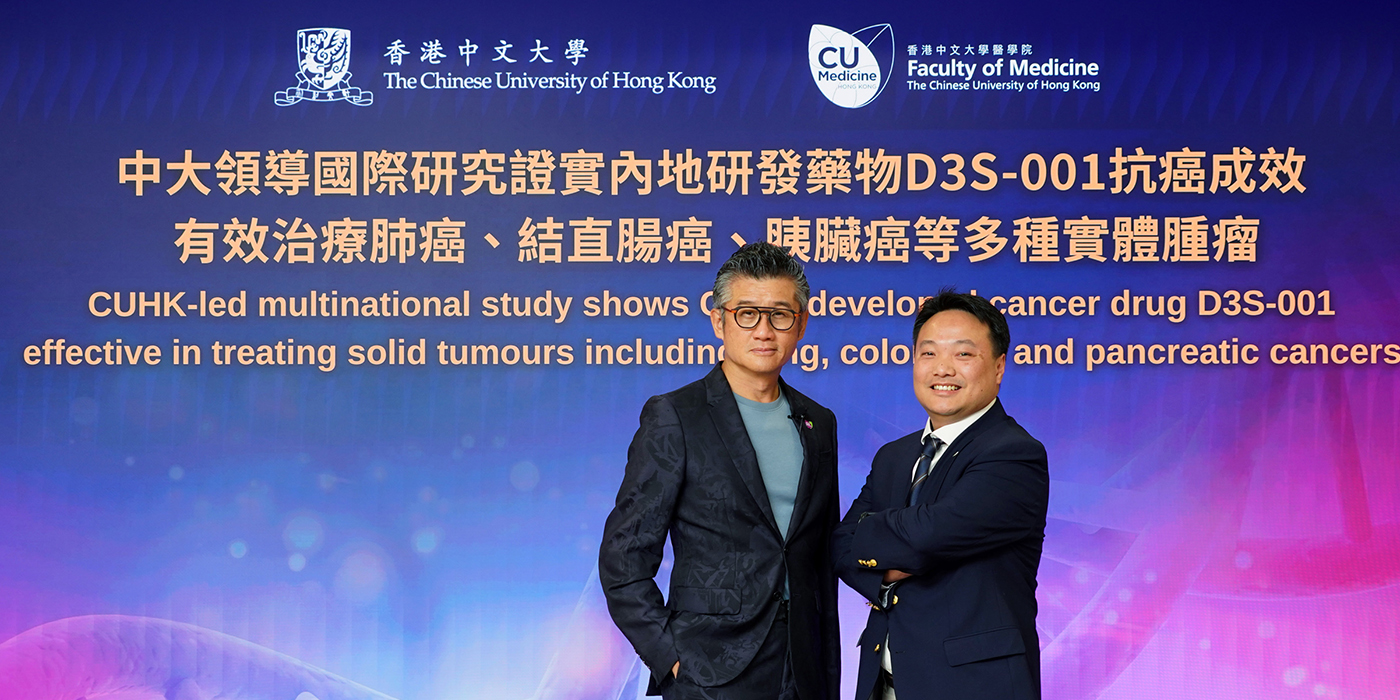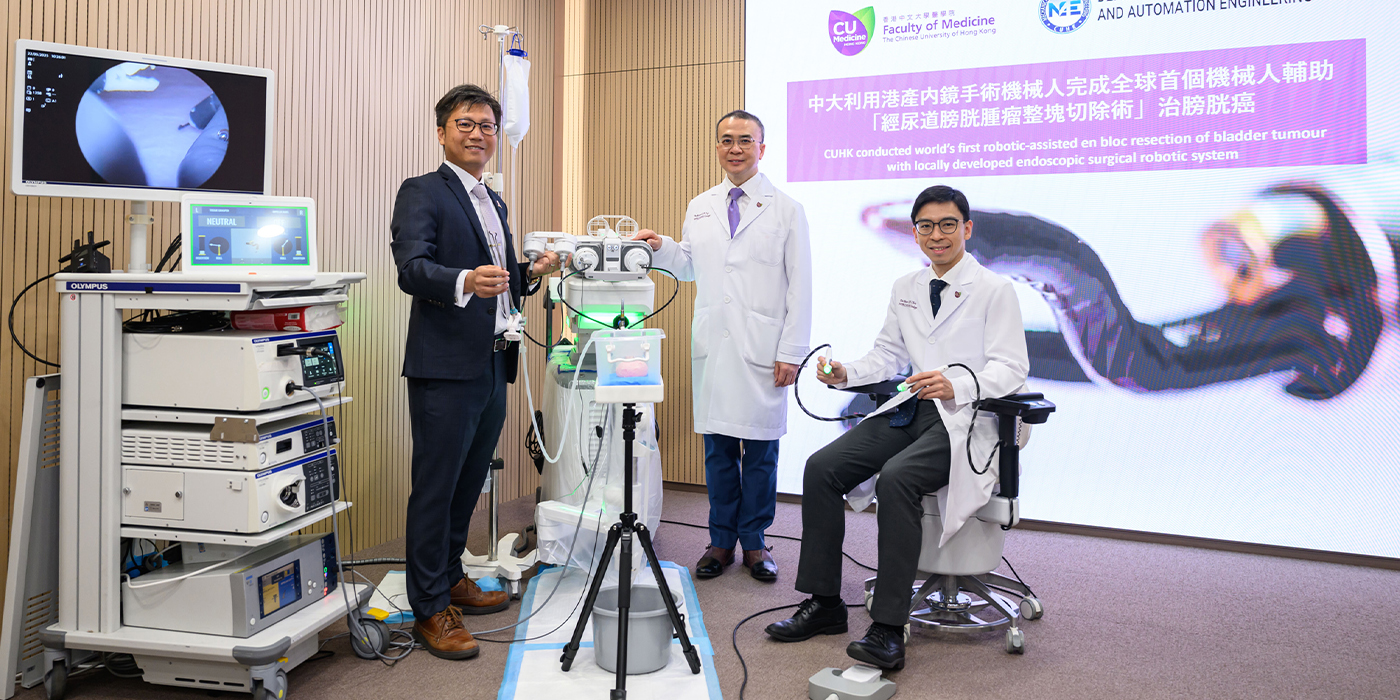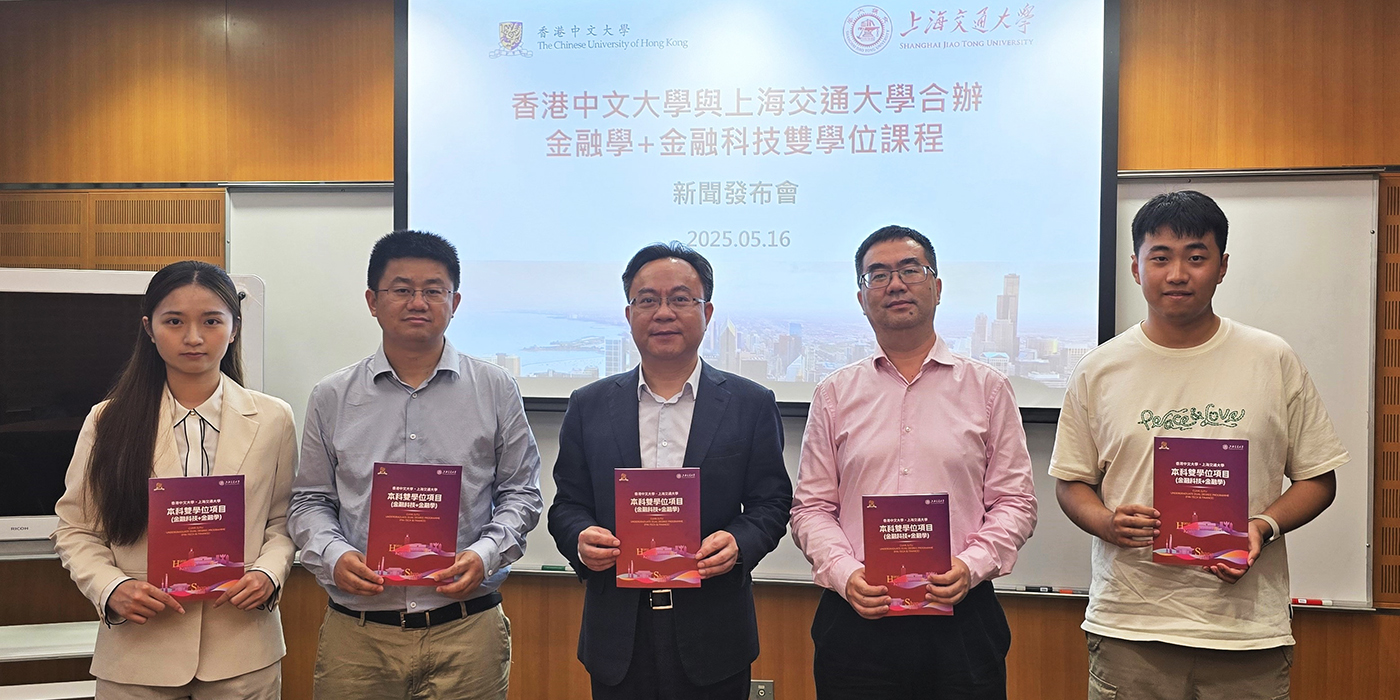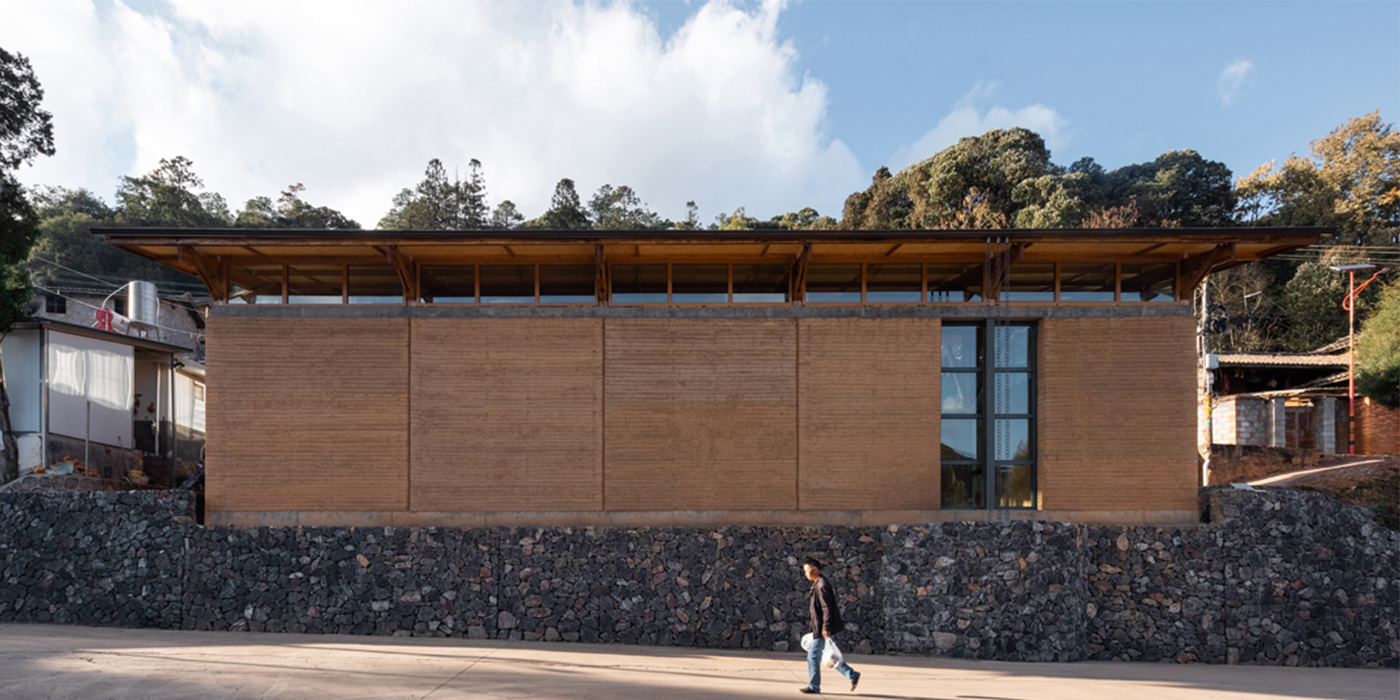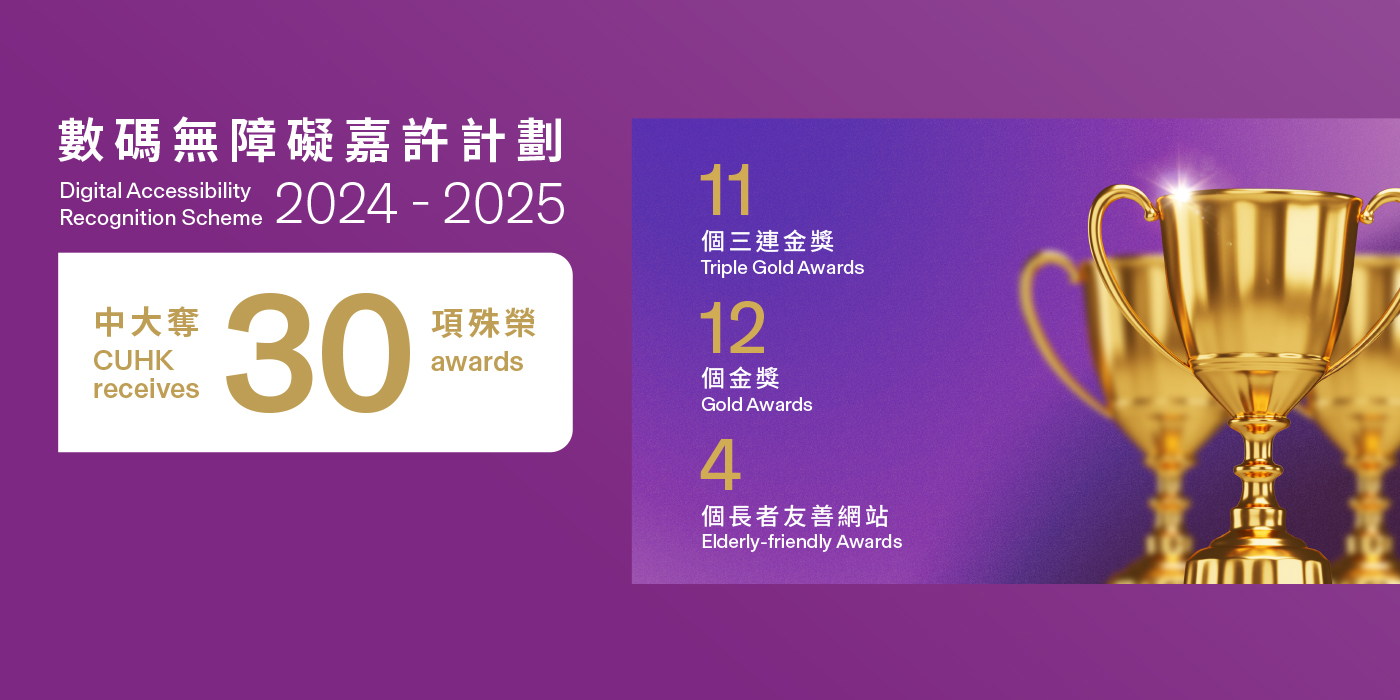The way to bring deaf and hearing people closer together
Film screening celebrates inclusiveness at CUHK
16 April 2025
The film The Way We Talk, directed by CUHK alumnus Adam Wong Sau-ping, has received rapturous acclaim from moviegoers and critics since its release in February. Its lead female has also earned a best actress award at the prestigious Golden Horse Awards in Taipei.
The film focuses on the complex lives of three young deaf people, highlighting diversity within the deaf community as they integrate into mainstream Hong Kong society while staying true to themselves. It is in Cantonese with Chinese and English subtitles.
On 24 March, nearly 1,000 students, faculty and alumni attended a special screening on campus. Wong, actors Chung Suet-ying and Marco Ng, and Professor Gladys Tang Wai-lan, Director of CUHK’s Centre for Sign Linguistics and Deaf Studies, shared their thoughts on the film at a post-screening panel discussion. The film’s production team comprised deaf as well as hearing members, with CUHK playing a pivotal role in the team’s formation.

It all started in 2003 when Professor Tang founded the Centre for Sign Linguistics and Deaf Studies at CUHK, dedicated to promoting interdisciplinary research and training in sign language. She also noted the lack of spoken and sign language education support for deaf students in Hong Kong’s education system, which she believed hindered their languages, communication and social skills. The centre therefore implements the Sign Bilingualism and Co-enrolment Education (SLCO) Programme in kindergartens, primary and secondary schools to enhance students’ academic progress and ability to further studies.
In 2016, the team established SLCO Community Resources, a social enterprise to promote the benefits of sign language bilingualism among different groups in the community.
While doing research for the film, producer Fiona Wat and director Adam Wong received crucial support from SLCO Community Resources. They sat in lessons to observe the bilingual teaching (spoken and sign languages) and interviewed a wide range of people within Hong Kong’s deaf community. “In the classrooms, deaf students demonstrated a sense of self-affirmation which deeply impressed me,” says Wat in an interview with CUHK in Focus.
Among the deaf individuals depicted in the film, some are like Wolf, one of the main characters, who embraces sign language and deaf identity with confidence. Such self-identity deeply moves Wong, who got interested in the deaf culture after reading the script of a short film. “I aimed to portray the deaf community from their perspective in the film, not out of sympathy but with empathy,” he says. To ensure an authentic representation of the lives of deaf people, the production team included sign language coaches, deaf culture consultants, and deaf actors from different generations, referred by SLCO Community Resources.
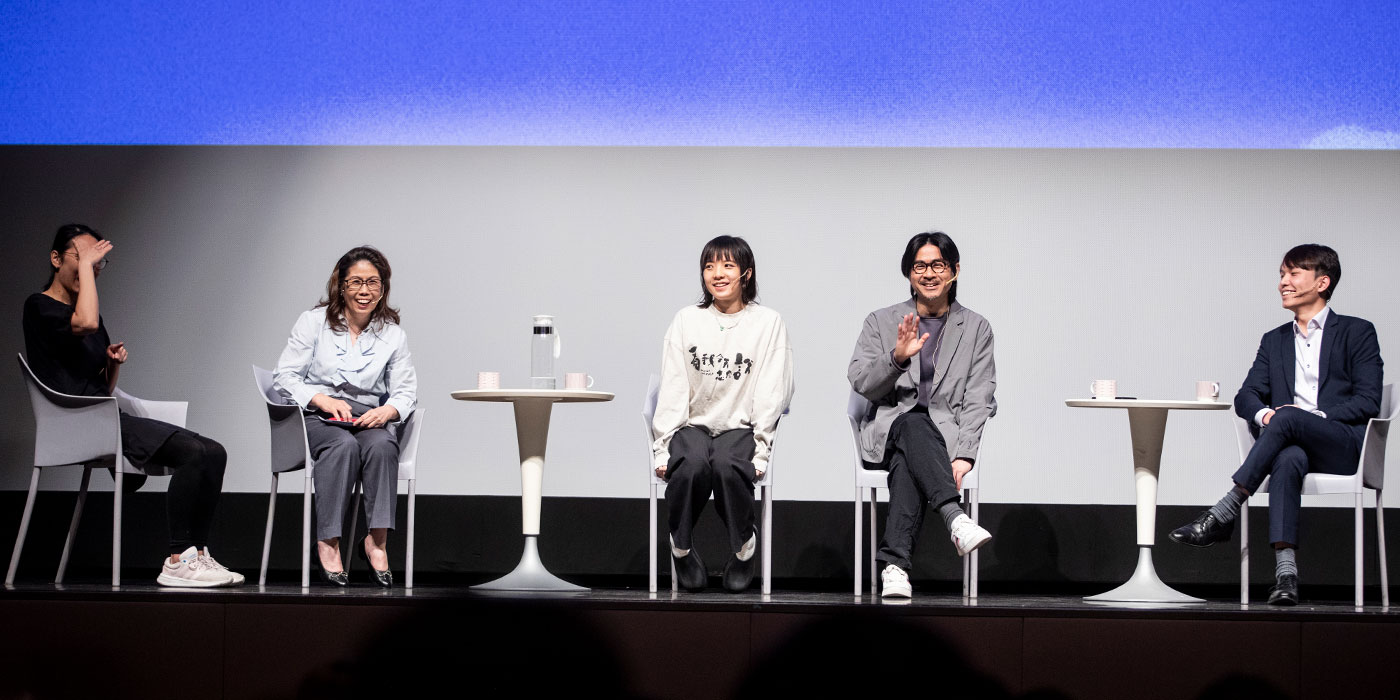
SLCO Community Resources Director Dr Chris Yiu Kun-man and General Manager Raymond Wong Cheuk-hon, highlight that oral teaching had long been the primary method for educating deaf children. It was not until the 2006 United Nations Convention on the Rights of Persons with Disabilities recognised and promoted the use of sign language, that sign bilingual education gained attention. For example, sign language interpreters began appearing at the corner of TV screens during important public service announcements. Yiu and Wong appreciate the film’s exploration of issues concerning the deaf community and are pleased with the positive feedback garnered.
Marco Ng, the deaf actor who plays Alan in the film, has been educated in the SLCO Programme since childhood and is fluent in both spoken and sign languages. He is particularly impressed by the script’s detailed and accurate depiction of life as a deaf person. “For example, in the scene of (female lead) Sophie’s graduation ceremony, she hears only a noisy rustling sound in the crowd, which is exactly my everyday experience,” he laughs. Ng believes this film could help raise public awareness of the daily challenges members of Hong Kong’s deaf community face and the contributions they make.
At a ceremony to introduce the film, CUHK Vice-Chancellor and President Professor Dennis Lo Yuk-ming reiterated CUHK’s commitment to fostering a culture of diversity and inclusion. “We ensure all members can thrive and reach their full potential in an open and respectful environment,” he said.
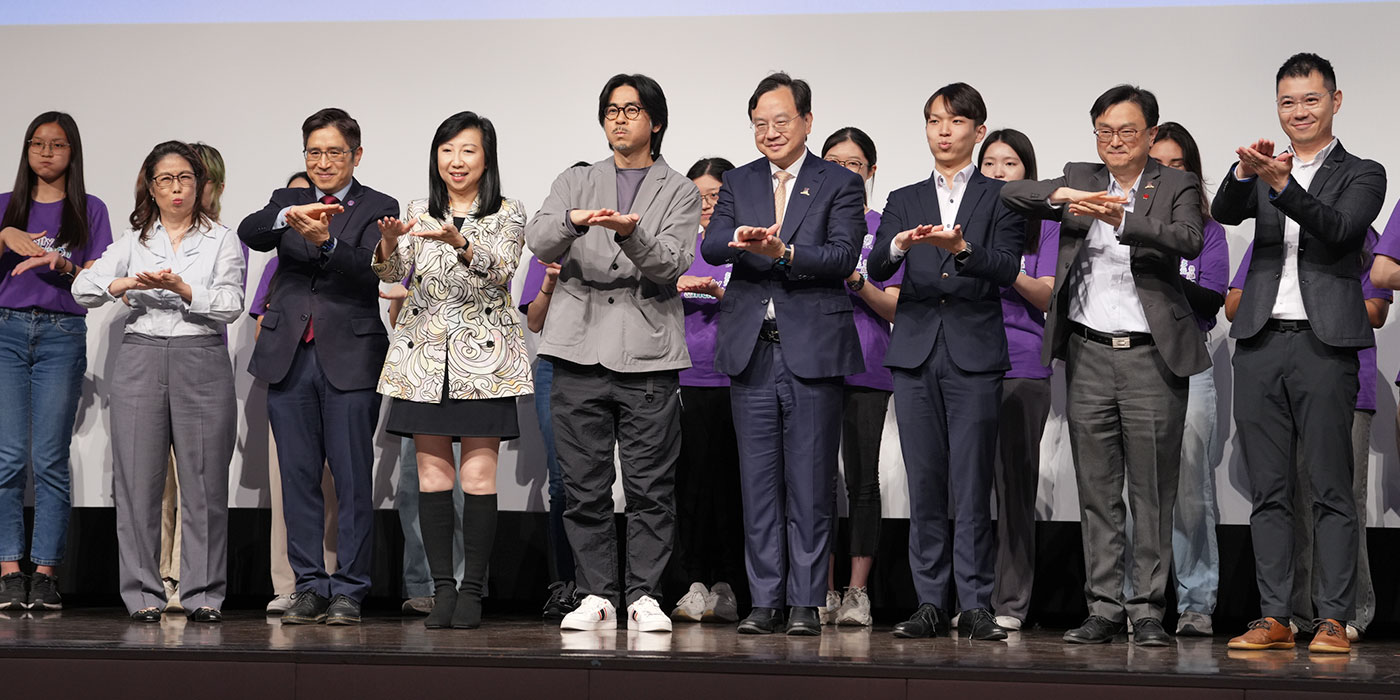
At the post-screening sharing, Wong explained that there are various types and degrees of deafness, as depicted in the film. He added that the debate over using sign language or having cochlear implants – electronic devices that send sounds straight to the “hearing” nerve, bypassing damaged inner-ear structures – is a genuine one among deaf people, and not just a dramatic element in the film. He believes that the SLCO Programme could help to alleviate friction arising from differences of view.
Chung, who was named best actress at the 2024 Golden Horse Awards in Taipei for her part, shared her experience of preparing for the film, highlighting the immense enthusiasm and joy involved in working with deaf individuals. She noted that they, in turn, appreciated hearing people’s efforts to understand their culture.
Based on his own experience, Ng said that there was still room for improvement for policies and arrangements for the deaf in Hong Kong, such as in schools, hospitals, or courts. For example, he recalled vividly seeing a notice at a hearing test centre asking deaf people in the waiting area to listen for their number to be called.
In concluding remarks, Professor Tang emphasised that even within the deaf community, mutual understanding and acceptance are essential, let alone between the deaf and hearing communities. “What matters is our attitude towards each other. I hope the film helps everyone understand the importance of mutual respect, communication, and acceptance, fostering a more diverse and inclusive society.”
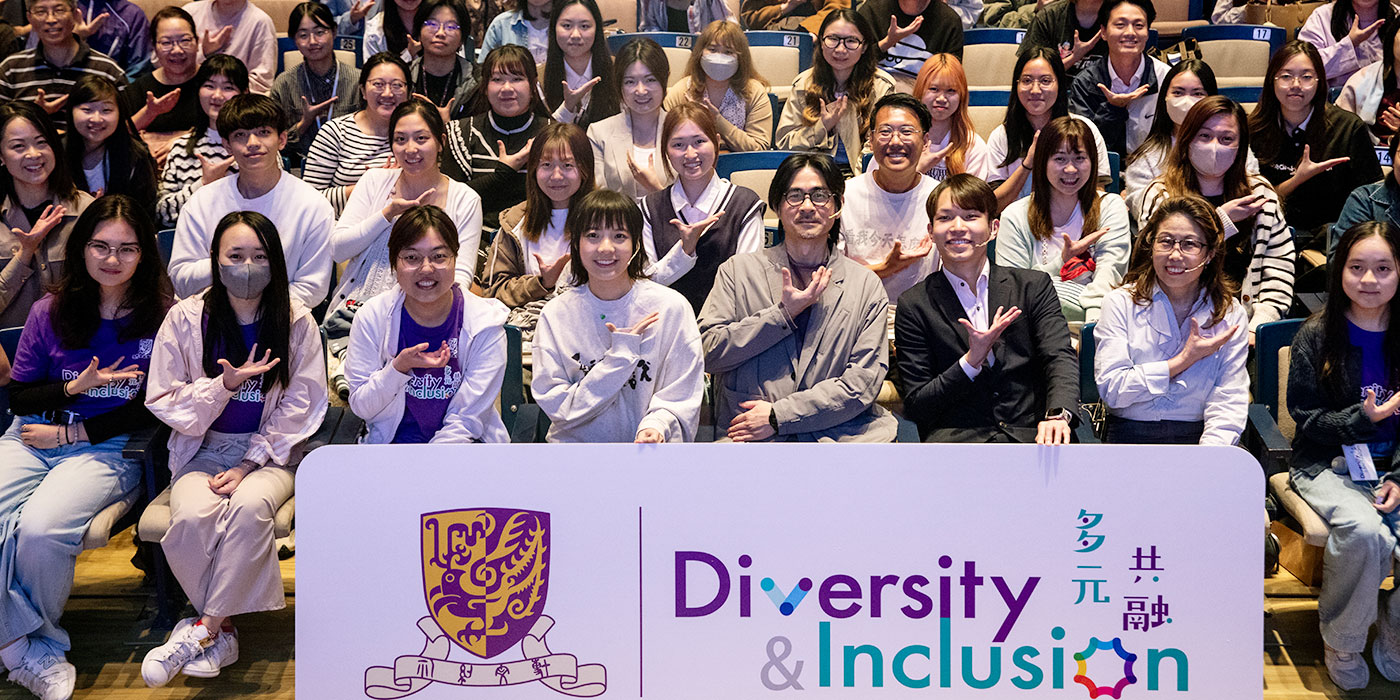
By Eva Choy
Photos by LCT

